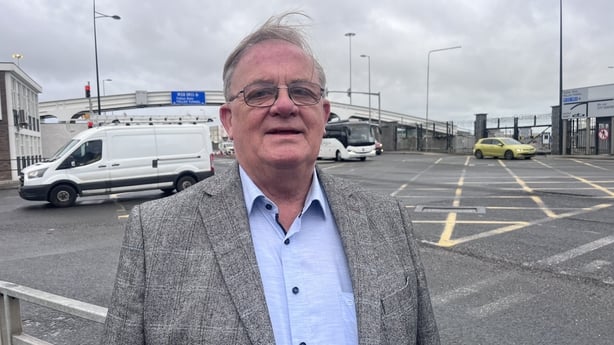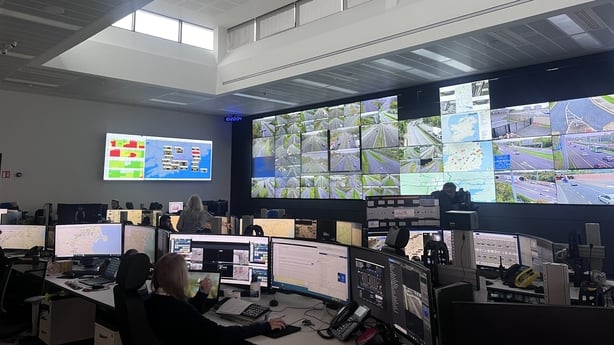The Irish Road Haulage Association has accused the operators of the Dublin Port Tunnel of causing traffic gridlock and disrupting supply chains because of upgrade work which will continue for three months.
Transport Infrastructure Ireland says the work will result in less tunnel closures, but hauliers say the new technology in the tunnel will leave Ireland "stuck in the past".
Dublin's Port Tunnel is 18 years old and the upgrade work is being carried out to modernise a number of aspects of its operation, including its CCTV and control systems.
To accommodate some of that work, the tunnel is due to close at night 18 times in October, 16 times in November and 12 times in December.
The closures take place Monday to Thursday between 9.30pm and 4.30am
The work also requires the closure of lanes on both sides of the tunnel, one at a time, to install the new tolling system.
The IRHA say this is causing traffic chaos, disruption to supply chains and causing drivers to go over the numbers of hours they are allowed drive for.
Eugene Drennan of the IRHA said there is "absolutely gridlock".

"Last Monday was just mayhem here. We missed all the deadlines. Our drivers went over their hours. We cannot have this in the supply chain," he said.
"They're going to have works for the months of October, November and December, in a very crucial supply chain time for Christmas."
TII says the frustration of drivers is understandable and that there were particular delays caused last Monday, due to teething problems with the new lane closures, but they say they are working to prevent such issues happening again
However, they said there will be some disruption for the duration of the works, which are due to continue until the end of the year and they're advising people using the tunnel to allow extra time for their journeys.
Kevin O'Rourke, Head of Network Operations at TII, said closure times are well advertised on their website and on signage adjacent to tunnel.
"In order to put the tolling systems in place, one lane at a time has been taken out on a rolling programme," Mr O'Rourke said.
"And that is inevitably going to reduce the capacity on the throughput. So, we're working through that.
"There may be disruption as the new systems are put in place, and people should allow us additional time for their journey, but staff here are doing everything to minimise the risks."

However, hauliers have also criticised the new technology being introduced, saying that it leaves Ireland "stuck in the past".
Mr Drennan says they are frustrated that the new system will not offer barrier-free tolling, which he said would reduce delays and carbon emissions.
"They haven't done it correctly. They should have a barrier-free tolling like the rest of Europe, like the M50, and get the flow of traffic," he said.
"It's new technology. You should get up with the times and have the traffic flow and not be creating carbon here for Dublin Port and Dublin city."
However, Mr O'Rourke says that TII could not introduce barrier-free tolling to the tunnel because it needs to be able to prevent traffic entering the bores of the tunnel in the event of an incident.
It says the new technology will lift the barriers sooner and allow for a greater flow of trucks and cars through the tunnel.
"We've installed a new gantry, which houses the new technology. Currently trucks have to stop, wait for the barrier to lift, maybe just a second, but it is disruptive to their journey," he said.
"In the new system, as long as the truck approaches at a safe operating speed, the barrier will have raised, and they will go through unhindered."
The new system is due to begin operating in early 2025.







